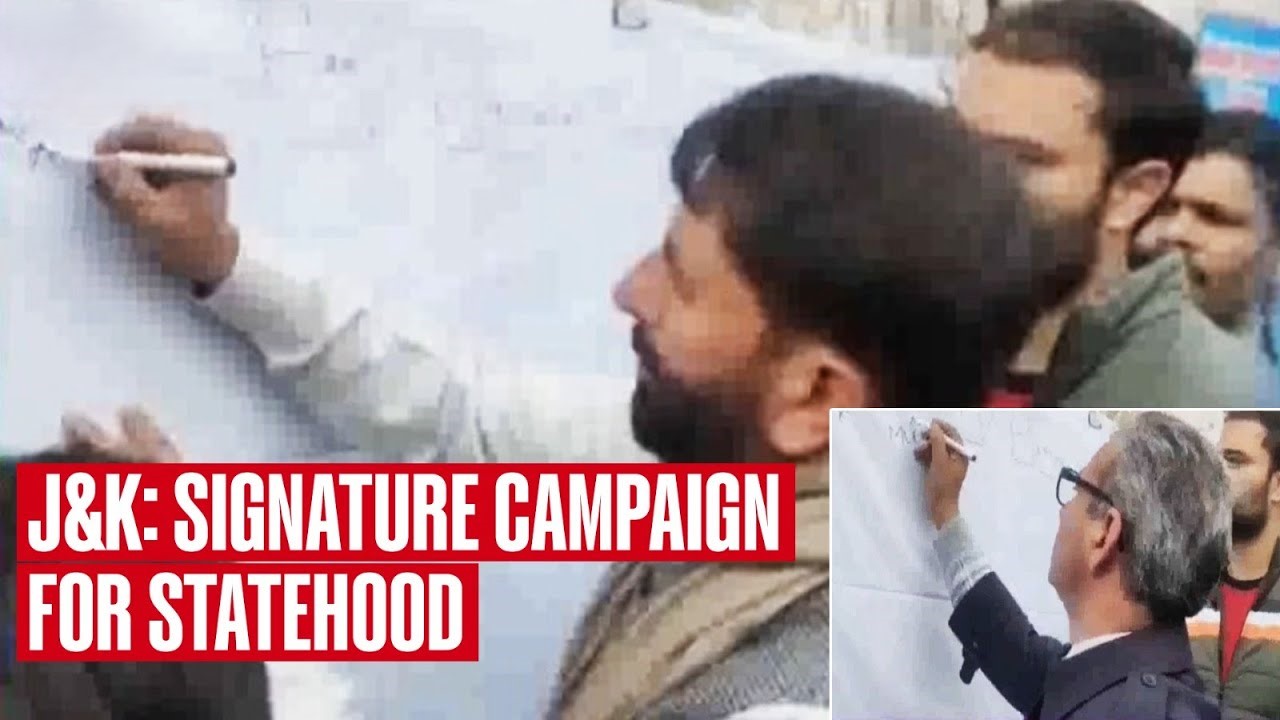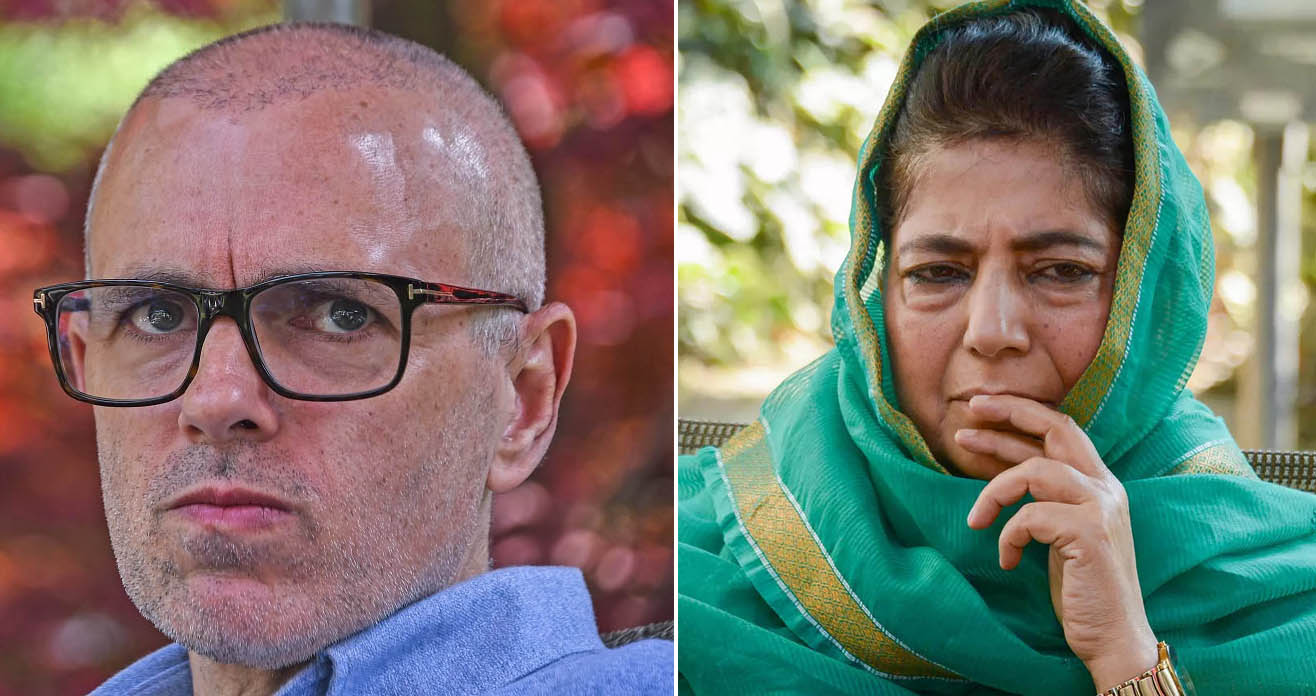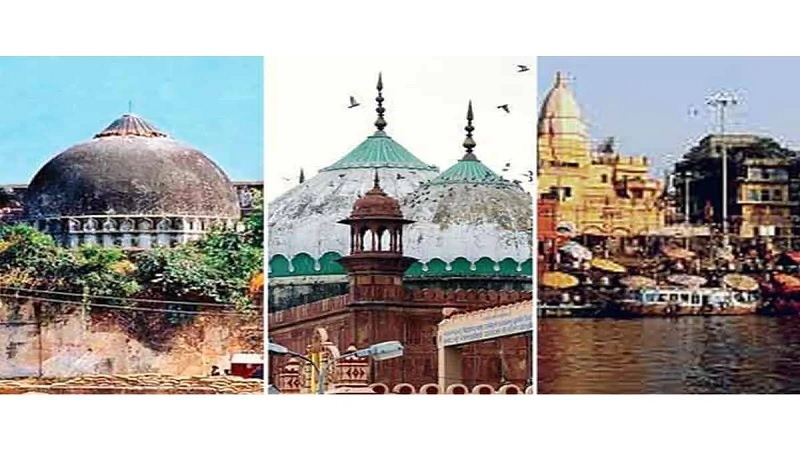Omar Abdullah’s signature campaign for J&K statehood sparks criticism: Opposition calls it theatrics while experts question why the NC isn’t using its Assembly mandate to push for constitutional action.
By: Javid Amin | 18 Aug 2025
A Question of Leadership vs. Symbolism
The people of Jammu and Kashmir have already spoken—loudly, clearly, and constitutionally. In the 2024 Assembly elections, the National Conference (NC) was handed a decisive mandate. The campaign slogan was unambiguous: restore statehood, fight for Article 370, and rationalise reservation policies.
Yet, instead of using the instruments of power that this mandate confers—legislation, Assembly resolutions, parliamentary lobbying, and constitutional petitions—the ruling NC has chosen to launch a door-to-door signature campaign.
The move has been hailed by NC as a “people’s movement,” but critics across the political spectrum have dismissed it as theatrics, tokenism, and betrayal of trust. The fundamental question being asked is:
Can a signature campaign—essentially a civil society pressure tactic—carry more weight than the electoral mandate itself?
Short answer: No.
But the long answer reveals much more about the state of Kashmiri politics, the crisis of leadership, and the dangers of substituting action with symbolism.
The Power of the 2024 Vote: A Mandate Already Delivered
Why Votes Matter More Than Signatures
In a democracy, the most powerful tool is the vote. It is constitutional, binding, and legitimizing. When voters in Jammu and Kashmir gave NC a majority with 50 MLAs in a 90-member Assembly, it wasn’t symbolic. It was a directive—a transfer of sovereignty from the people to their representatives.
That mandate was not for street-level petitions. It was for governance and legislative action.
The people didn’t queue up to vote for NC so that Omar Abdullah could return to them eight months later with a pen and paper, asking them to sign again.
As one critic put it bluntly:
“No signature campaign can speak louder than the Assembly election of 2024 and the clear mandate that the National Conference received.”
What a Signature Campaign Is (and Isn’t)
Civil Society’s Tool, Not Government’s Duty
Traditionally, signature campaigns are pressure tactics. Civil society groups, NGOs, students, or ordinary citizens—those who lack legislative power—use them to politically educate, mobilize masses, and mount moral pressure on those in power.
But when the ruling party itself launches such a campaign, it exposes either:
-
A lack of conviction (fear of taking tough positions),
-
Avoidance of legislative responsibility, or
-
Manipulation of public sentiment (outsourcing accountability back to citizens).
This is why opposition leaders like Waheed Para, Sajad Lone, and Inam Un Nabi have condemned Omar’s move as:
-
“Retreat and betrayal” – Waheed Para (PDP)
-
“Theatrics and token gestures” – Sajad Lone (People’s Conference)
-
“Shameful confession of political irrelevance” – Inam Un Nabi (AIP)
Numbers Game: How Many Signatures Would “Matter”?
Let’s assume NC is serious about mobilization.
-
J&K has 90 Assembly constituencies.
-
Omar Abdullah has promised to cover each one in 8 weeks.
-
Suppose NC collects 10,000 signatures per constituency.
That would amount to 900,000 signatures. Let’s be generous and round it up to 1 million.
But even 1 million signatures:
-
Do not override the Assembly’s constitutional vote.
-
Do not compel the Supreme Court to act.
-
Do not bind the Union Government.
As Sajad Lone correctly asked:
“Name one event in India—or the world—where signature campaigns altered legal interpretations. They are not even admissible.”
Why This Feels Like Political Theatre
A Convenient Distraction
The Supreme Court has given the Centre eight weeks to respond on J&K’s statehood. Interestingly, Omar’s campaign is designed to last exactly those eight weeks.
Coincidence? Or a stalling tactic?
Instead of passing a formal Assembly resolution—which would carry constitutional dignity and directly strengthen J&K’s case before the Court—the NC has chosen an activity that consumes time but produces no binding effect.
Critics argue this is deliberate—a way to appear active without taking political risks or facing constitutional accountability.
As one commentator noted:
“Don’t set the stage for denial of statehood. Act like a leader. Don’t throw tantrums.”
The Proper Constitutional Route
If Omar Abdullah is truly serious, there are three clear avenues:
-
Pass a resolution in the J&K Assembly – backed by NC’s majority.
-
Lobby Parliament – gather signatures of MPs across parties, attach them to a memorandum, and submit it to the President and PM.
-
File a formal petition in the Supreme Court – with constitutional standing, not as a symbolic gesture.
These routes carry legal weight. A signature campaign does not.
Opposition Voices: Unanimous Condemnation
Beyond the big three critics (Para, Lone, Un Nabi), other leaders have also spoken out:
-
Mehbooba Mufti (PDP) – warned against “normalising August 5” and accused NC of “political tokenism.”
-
Ghulam Ahmad Mir (Congress) – said the campaign was “a gimmick to cover up NC’s inaction.”
-
Aga Ruhullah Mehdi (NC MP) – openly criticised his own party for being “less vocal” on Article 370 and failing to deliver.
The fact that even NC insiders are uneasy reflects a broader crisis of credibility.
Citizens as Shields: Burdening the People Again
Ordinary Kashmiris have already:
-
Voted in record numbers.
-
Protested when needed.
-
Petitioned their leaders.
To now ask them to sign again is unfair and manipulative. It shifts the burden of responsibility from the government (which has power) back to the people (who have already exercised it).
As one critic said:
“The munsif we were looking at for justice have become muddai now—to kill time and fool people.”
Judiciary and the “Tom, Dick & Harry” Syndrome
Sajad Lone’s warning is crucial here. The Supreme Court deals with constitutional entities—governments, legislatures, or recognized institutions.
Random petitions, no matter how emotionally powerful, often get dismissed as inadmissible. By submitting signatures without Assembly backing, NC risks reducing a constitutional issue to a “Tom, Dick & Harry” petition.
This not only weakens J&K’s case but also erodes institutional dignity.
What Needs to Be Done Instead
-
Table a resolution in the Assembly – it’s the NC’s constitutional duty.
-
Launch parliamentary lobbying – mobilise MPs across states and parties.
-
Coordinate with civil society – let grassroots groups handle symbolic campaigns, while the government focuses on binding action.
-
Maintain transparency – disclose strategy, timelines, and legal steps.
Conclusion: Leadership, Not Lip Service
The people of J&K have already delivered their verdict—through the ballot, not through petitions. Omar Abdullah’s government must now convert that mandate into constitutional action, not outsource accountability back to citizens.
Signature campaigns are for the powerless. Omar Abdullah is not powerless. He is the Chief Minister. He must act like one.
What Kashmir needs is not symbolism, but strategy. Not another circus of petitions, but information with a spine.
History will not remember how many signatures were collected. It will remember whether those entrusted with power had the courage to use it.



